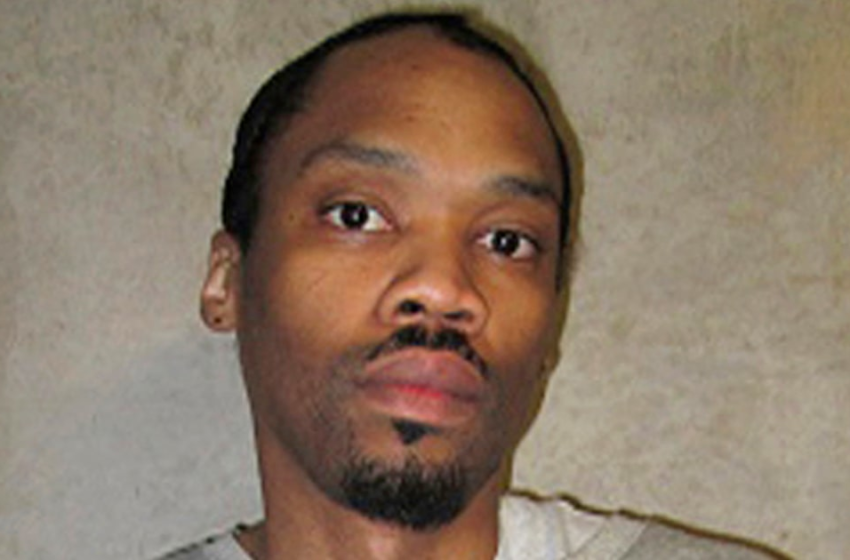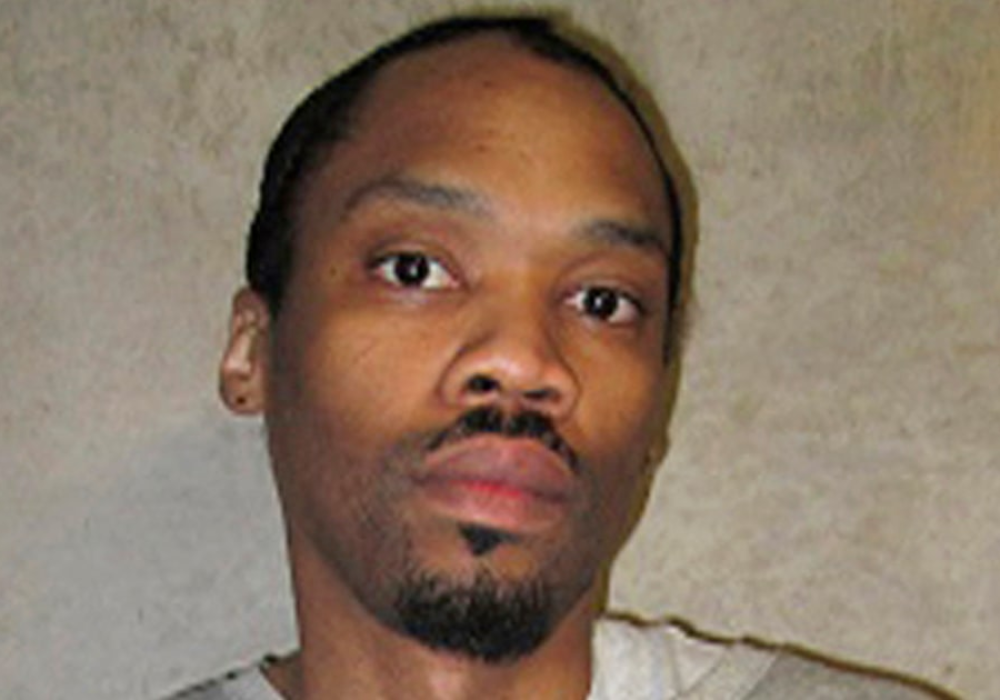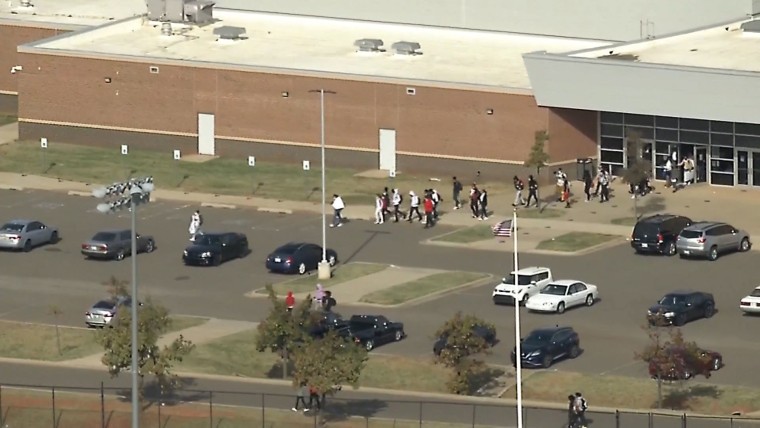Oklahoma Gov. Kevin Stitt on Thursday commuted the death sentence of Julius Jones to life in prison without the possibility of parole amid protests and a last-minute court appeal that argued the state’s execution process amounted to “cruel and unusual punishment.”
Stitt’s announcement came after Jones’ supporters staged days of protests in advance of his scheduled execution, which was to take place at 5 p.m. ET Thursday at the Oklahoma State Penitentiary in McAlester. Jones, 41, has maintained his innocence for more than two decades in the 1999 slaying of Paul Howell, a businessman in the affluent Oklahoma City suburb of Edmond.
“After prayerful consideration and reviewing materials presented by all sides of this case, I have determined to commute Julius Jones’ sentence to life imprisonment without the possibility of parole,” Stitt said in a statement.
“I want to say thank you to our honorable governor, thank you, thank you God, thank you Jesus,” Jones’ sister, Antoinette Jones, said moments after the announcement from the governor’s office. “I want to thank everyone for continuing to tell Julius’ story. Thank you to the world.”
Attorneys for Jones filed a motion Thursday seeking an injunction to halt his execution based on “important new evidence” from the Oct. 28 execution of inmate John Grant, who vomited and convulsed repeatedly before being declared dead. The motion argued Grant’s execution provides “compelling evidence” that the execution process in Oklahoma and the use of midazolam, a controversial drug, “pose a serious and substantial risk of suffering and pain to prisoners.”
Moments after the announcement, over a hundred supporters who had gathered outside the Oklahoma State Penitentiary that morning rejoiced, and clergymen led the group in prayer and song.
In Oklahoma City, protesters gathered outside the governor’s office at the state capital also celebrated the decision. Stitt’s decision came down to the wire. Members of the press had begun gathering inside the prison to prepare for the execution, just hours away.
Per protocol, Jones had already been moved into solitary confinement in preparation for his lethal injection, and on Wednesday he was fed what was to be his last meal.
On Wednesday, students at high schools across Oklahoma City walked out of their classes in support of Jones’ appeal. Prayer vigils were held at the state Capitol, and barricades were erected outside the governor’s mansion. Celebrities pleaded his case on Twitter and other social media.
“Thousands of people across Oklahoma, the country, and the world have called on the Governor to prevent Oklahoma from executing an innocent man,” Jones’ attorney, Amanda Bass, said in a statement earlier Thursday, adding: “Our hope is that the Governor will ensure that this execution does not go forward given the many concerns about the execution process and Mr. Jones’s case.”
Jones’ mother, Madeline-Davis-Jones, spoke to a group of about 300 people who gathered Wednesday at the Capitol outside Stitt’s office, chanting and singing hymns.
“I don’t want to go to a lynching,” she said, her voice rising with emotion. “… Why would I want to see someone hang? We should be through with that. Do you want your baby, your child to be hanged?”
Jones maintains he was framed by the actual killer, a high school friend and co-defendant who testified against him and was released from prison after 15 years.
State and county prosecutors have said the evidence against Jones is overwhelming. Trial transcripts show witnesses identified Jones as the shooter and placed him with Howell’s stolen vehicle. Investigators also found the murder weapon wrapped in a bandana with Jones’ DNA in an attic space above his bedroom. Jones claims the murder weapon was placed there by the actual killer, who visited Jones’ house after Howell was shot.
The state’s Pardon and Parole Board twice voted 3-1 to recommend Stitt grant clemency to Jones and commute his sentence to life in prison.
“I believe in death penalty cases there should be no doubt, and put simply, I have doubts in this case,” Chairman Adam Luck said in September following the board’s vote.
Howell’s sister, Megan Tobey, testified before the board that she distinctly remembers seeing Jones shoot her brother in front of his two young daughters.
“He is the same person today as he was 22 years ago. He’s still getting into trouble. He’s still in a gang. He’s still lying. And he still feels no shame, guilt or remorse for his action,” she said. “We need Julius Jones to be held responsible.”
Oklahoma ended a six-year moratorium on executions — brought on by concerns over its lethal injection methods — last month with Grant’s death.
Grant was the first person in Oklahoma to be executed since a series of flawed lethal injections in 2014 and 2015 led to a de facto moratorium. Richard Glossip was just hours away from being executed in September 2015 when prison officials realized they had received the wrong lethal drug. It was later learned the same wrong drug had been used to execute an inmate in January 2015.
The drug mix-ups followed a botched execution in April 2014 in which inmate Clayton Lockett struggled on a gurney before dying 43 minutes into his lethal injection — and after the state’s prisons chief ordered executioners to stop.
In a separate vote Wednesday, the pardon and parole board voted 3-2 to recommend clemency to another death row inmate, Bigler Stouffer, citing concerns with the state’s lethal injection protocols. Stouffer is scheduled to die Dec. 9.
Graham Lee Brewer is a national reporter for NBC News. He is a member of the Cherokee Nation, based in Norman, Oklahoma.











